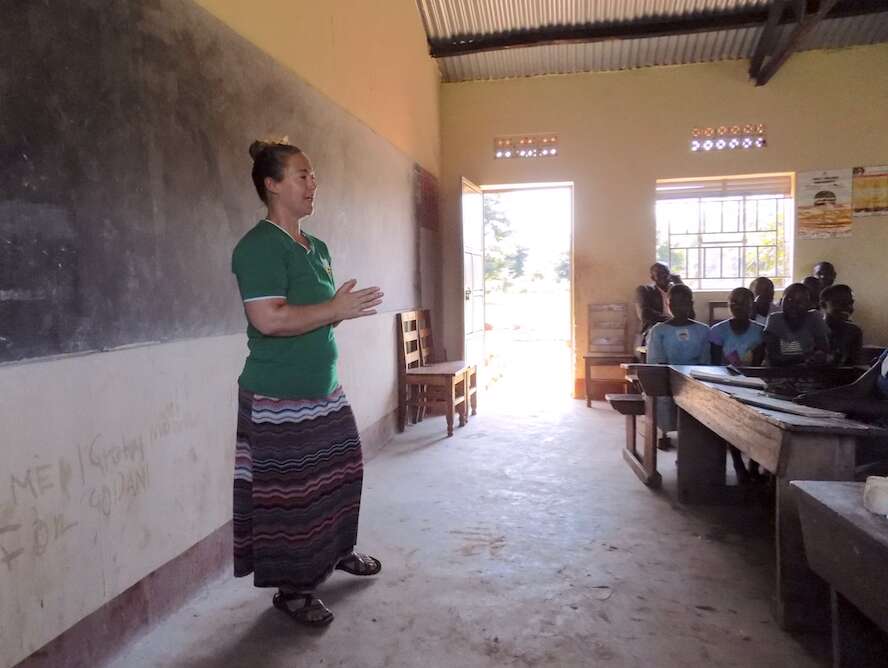Lessons from Uganda: Ditch the Playbook and Listen

Sometimes even the best-laid plans require last-minute modifications.
That was one of the most important lessons that Margo Welsh, a Master of Positive Health Psychology student, learned when she arrived in Uganda last summer for a two-month stint as part of the Uganda Village Project (UVP).
“I expected to be in the front rank of the first educational effort there with UVP,” Welsh says. “But having already had a team go out there, the people knew a lot more than I expected them to know.”
Welsh, who is due to graduate this May, was part of a small team that assisted the villagers of Kinu in the Iganga district of Uganda with educational outreach about such health issues as birth control, HIV, and ways to mitigate malaria which is endemic in the region.
Education is often a two-way street between teachers and those being taught, a lesson that Welsh says she learned during her time in Uganda.
“It’s more about listening to their needs and just responding to what they need,” she says. “We went into Kinu thinking we were going to educate the villagers on X, Y, and Z, and when we got there, we found that they knew so many things because of the inroads from the first-year team. So it was about sitting down with them and figuring out what they still needed to know, answering questions they had, and just being responsive to their needs—not going by the playbook we had.”

Communication challenges
For Welsh, the biggest challenge after hitting the ground in Uganda was simple communication.
“I didn’t speak the language [Swahili],” she says, “so we were always using interpreters which is problematic; just making sure that you’re understood and that you’re on the same page with everybody. It was an ongoing concern.”
Answering questions about various birth control methods and also trying to dispel a few stubborn superstitions about how malaria is contracted (eating fruit; working around cattle) was the focus for part of Welsh’s stay, with access to potable water being the biggest stumbling block to a healthier populace in Uganda.
“The trip changed me for sure,” she says. “I think the trip has made me more patient with people and more accepting of differences of opinion that are divergent from mine. Just being willing to talk through differences and look at things from a different perspective.”
Her university experience has taught her the same lesson.
“CGU is really good at helping us be mindful of different cultural perspectives,” she continues, “and I think this experience was just a way to personify that and kind of bring that to the forefront – living that experience instead of just talking about it.”
Learn more about the university’s Master of Positive Health Psychology program.